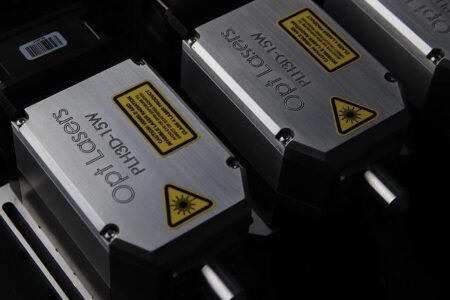Germany has announced a landmark commitment of €6 billion to accelerate the decarbonization of its heavy industry sector, signaling a decisive step towards climate neutrality. Central to this ambitious plan is the adoption of advanced carbon capture technologies, aimed at drastically reducing industrial emissions that have long posed challenges to environmental targets. As Europe’s largest economy doubles down on sustainable innovation, the investment underscores Germany’s strategic focus on marrying industrial growth with climate responsibility, setting a potential blueprint for other nations in the global fight against climate change.
Germany Advances Heavy Industry Decarbonization with Multi Billion Euro Investment
Germany is accelerating its transition to a low-carbon economy by allocating €6 billion in strategic investments aimed at decarbonizing its heavy industry sector. This ambitious move targets key industries such as steel, cement, and chemical manufacturing, which traditionally account for a significant portion of the nation’s carbon emissions. The funding will primarily support the development and deployment of cutting-edge carbon capture and storage (CCS) technologies, alongside hydrogen-based production processes and energy efficiency upgrades. Government officials emphasize that these efforts will safeguard industrial competitiveness while ensuring compliance with the EU’s stringent 2030 climate targets.
The initiative includes collaboration between public entities, private sector players, and research institutions to foster innovative solutions and scale up pilot projects to commercial viability. Key components of the program include:
- Expansion of carbon capture infrastructure to capture up to 90% of COâ‚‚ emissions from major plants.
- Investment in green hydrogen production as a replacement for fossil fuels in industrial processes.
- Development of industrial clusters that integrate CCS pipelines for efficient transport and storage.
- Support for retrofitting existing facilities to reduce their environmental footprint.
| Sector | Investment (€ Billion) | Targeted Reduction |
|---|---|---|
| Steel Production | 2.5 | 40% COâ‚‚ emissions |
| Cement Manufacturing | 1.8 | 35% COâ‚‚ emissions |
| Chemicals | 1.2 | 30% COâ‚‚ emissions |
| Supporting Tech & R&D | 0.5 | Innovation Acceleration |
Carbon Capture and Storage Technologies Take Center Stage in National Climate Strategy
Germany’s recent announcement signals a pivotal shift in climate policy, integrating Carbon Capture and Storage (CCS) technologies as a core tool in slashing industrial emissions. The €6 billion investment aims to retrofit existing heavy industry plants with state-of-the-art carbon capture systems, enabling substantial CO2 removal directly at the source. This bold move not only targets the reduction of greenhouse gases but also underscores the country’s commitment to fostering innovation in low-carbon tech and establishing a sustainable industrial base for decades to come.
The national strategy highlights key areas of focus for CCS deployment:
- Industrial hubs: Prioritizing clusters with the highest emissions for maximum impact.
- Pipeline infrastructure: Developing an extensive CO2 transport network to enable efficient storage and utilization.
- Geological storage sites: Mapping and certifying safe underground reservoirs.
| Sector | Projected CO2 Reduction (Mt/year) | Investment Share (%) |
|---|---|---|
| Steel Production | 5.3 | 40 |
| Chemicals & Plastics | 3.0 | 25 |
| Cement Manufacturing | 2.7 | 20 |
| Other Heavy Industries | 1.5 | 15 |
Policy Experts Recommend Accelerated Deployment of Integrated Pipeline Infrastructure
Leading policy experts emphasize the urgency of scaling integrated pipeline networks to support Germany’s ambitious decarbonization goals. They argue that a cohesive infrastructure, connecting carbon capture facilities directly to storage sites and industrial hubs, is essential for efficient and cost-effective emissions reduction. Fragmented or delayed pipeline projects could stall progress, undermining both environmental targets and economic competitiveness.
Key recommendations include:
- Fast-tracking regulatory approvals to minimize bureaucratic delays
- Enhancing cross-border pipeline collaboration within the EU
- Prioritizing investment in versatile pipeline materials to support varied gas compositions
- Implementing robust monitoring and safety protocols to ensure operational integrity
| Priority Area | Expected Benefit |
|---|---|
| Regulatory Reforms | Accelerate project timelines by 30% |
| Cross-Border Coordination | Lower infrastructure costs by 15% |
| Material Innovation | Improve pipeline lifespan by 20 years |
| Safety Enhancements | Reduce incident rates by 40% |
Future Outlook
Germany’s €6 billion commitment marks a significant milestone in the nation’s efforts to decarbonize its heavy industry sector, underscoring the strategic role of carbon capture technologies in achieving climate targets. As the country invests in cutting-edge pipeline infrastructure and innovative solutions, its approach could set a precedent for industrial decarbonization globally. Stakeholders will be closely watching how these initiatives unfold, potentially shaping the future of sustainable manufacturing and energy transition across Europe and beyond.




